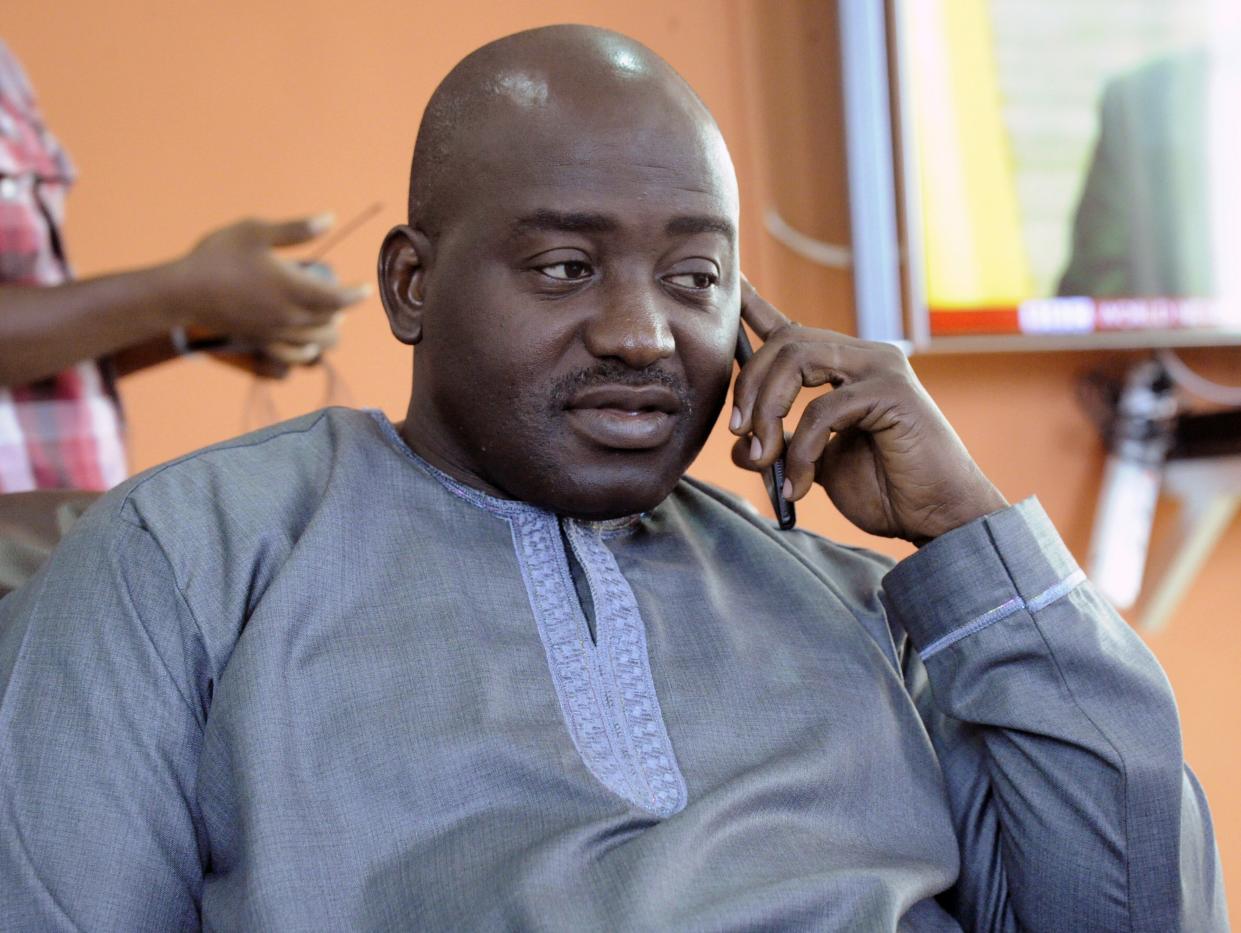FIFA bans African soccer official 10 years for stealing funds from Ebola campaign

The latest corruption scandal inside FIFA involves an African official stealing money from the organization’s campaign to help fight Ebola.
FIFA banned Musa Bility from all soccer duties for 10 years and fined him $507,200 for financial wrongdoing, the Associated Press reported Wednesday. Bility was a member of the Confederation of African Football (CAF) executive committee who led the Liberian soccer federation (LFA).
African official stole money from Ebola campaign
FIFA found that Bility, 52, had misappropriated “funds granted under FIFA’s ‘11 against Ebola’ campaign,” per reports.
The “11 against Ebola” campaign launched in November 2014, nine months after the Ebola disease became an epidemic in West Africa. The epidemic was the largest in Ebola’s history, according to the Centers for Disease Control (CDC), and spread from southeastern Guinea to Liberia and Sierra Leone. It was declared a public health emergency in August 2014 and declared over in June 2016.
FIFA’s Ebola program was implemented in 15 African countries and was meant to use the “power of football” to give out “simple educational messages to prevent the spread of the disease,” FIFA chief medical officer Prof. Jiří Dvořák, MD, said in 2014.
Funds were meant for pubic health messages through a multimedia campaign to keep the deadly disease from spreading any further. Instead, according to FIFA’s investigation, Bility took it for himself.
FIFA finds ‘conflict of interest’
Bility was also banned and fined for conflicts of interest, including “various payments made by the LFA to (and received from) entities owned by or connected to Mr. Bility and his family.” He’s been under investigation since May 2018 after FIFA audited the LFA’s financial records, per AP.
He is “suspected,” the AP reports, of misappropriating money from Liberia’s annual FIFA grants worth hundreds of thousands each. The grants are meant to improve soccer around the globe, especially in developing countries that could use more investment and oversight.
Bility plans to appeal the decision, saying in a statement via the BBC:
“I have requested my legal team to delve into this matter expeditiously with a view to challenging this decision by the Ethics committee through all available channels. Let me reiterate my commitment to exonerating myself off of these spurious accusations.”
The verdict came days after he filed a case against FIFA and CAF with the Court of Arbitration for Sport (CAS). Bility is unhappy with a deal that puts FIFA secretary general Fatma Samoura as the “general delegate to Africa,” calling it a “hostile takeover of CAF by FIFA,” per the BBC.
Bility ran for FIFA president in 2015 but was blocked after the CAS upheld a ruling saying he failed an integrity check. He was banned from soccer activity for six months in 2013 after arguing rule changes.
FIFA’s corruption continues
Corruption in FIFA is almost expected at this point from soccer fans around the world. Several top officials were arrested on corruption charges in June 2015, an unsurprising headline to fans.
The actions dated back to 1991 and included Sepp Blatter’s election to the presidency and the awarding of World Cup men’s tournaments to Russia and Qatar.
Trials found more than $150 million taken in bribes in one case spanning decades.
While not specifically corruption, many take issue with FIFA in other ways, from VAR reviews to ticket mix-ups to scheduling three tournament finals on the same day.
More from Yahoo Sports:

 Yahoo Lifestyle
Yahoo Lifestyle 

